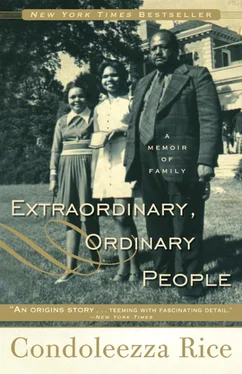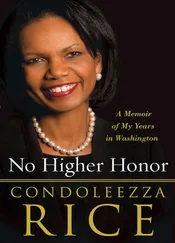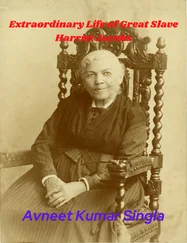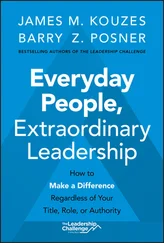Joint Chiefs of Staff:Group of military officials who advise the president and nonmilitary leaders of the Defense Department. The Joint Chiefs is made up of the leaders of the four branches of the military—the U.S. Army, Navy, Air Force, and Marines—and the chairman, who is generally considered the president’s top military advisor.
Kennedy, John Fitzgerald (1917–1963):Thirty-fifth president of the United States (and first Catholic to be elected). Kennedy ran on a platform of commitment to civil rights legislation, and it became a priority of his presidency. He also established the Peace Corps, which trains Americans who volunteer to live and work in developing countries. Kennedy was assassinated in Dallas on November 22, 1963.
Kennedy, Robert Francis “Bobby” (1925–1968):Appointed U.S. attorney general by President Kennedy, his older brother, he remained in that position under President Johnson until he left in 1964 to run successfully for the U.S. Senate from New York. In 1968, while running in the Democratic primary for president, he was assassinated in Los Angeles.
Khrushchev, Nikita (1894–1971):First secretary of the Communist Party of the Soviet Union from 1953 to 1964 and premier from 1958 to 1964. After the death of dictator Josef Stalin, who ordered political purges and mass murders during his twenty-five-year reign, Khrushchev declared a desire for “peaceful coexistence” with Western governments. In practice, however, he often pursued a more confrontational stance with the United States and its allies. In 1964, he was replaced by Leonid Brezhnev.
King, Jr., Martin Luther (1929–1968):Baptist minister, civil rights activist, and advocate of nonviolent civil disobedience. In 1955 and 1956, King led the Montgomery bus boycott, an early demonstration of the power of peaceful resistance, and in 1957, he helped found the Southern Christian Leadership Conference (SCLC). His powerful speeches, including the “I Have a Dream” speech on the steps of the Lincoln Memorial, influenced the nation and helped lead to the passage of the Civil Rights Act of 1964; he was awarded the Nobel Peace Prize that year. King was assassinated in Memphis in 1968.
Korbel, Josef (1909–1977):Czech diplomat, founder of Denver University’s Graduate School of International Studies, specialist on the Soviet Union, and father of former secretary of state Madeleine Albright. Professor Korbel was an influential mentor for Condoleezza Rice and inspired her to pursue a PhD in international politics.
Kosygin, Alexei (1904–1980):Premier of the Soviet Union from 1964 to 1980. Initially, Kosygin shared power with Leonid Brezhnev and Nikolai Podgorny (chairman of the Presidium), but gradually Brezhnev assumed control and Kosygin retired.
Ku Klux Klan (KKK):White supremacist organization founded in Tennessee in 1866 by Confederate soldiers returning from the Civil War; they opposed Reconstruction and civil rights for blacks. Men dressed in white sheets and hoods to frighten their victims, whom they pursued in nighttime raids; they often maimed or killed blacks and Northern sympathizers. The Klan died down during the 1880s, only to rise again at the turn of the century and spread across the country. At its peak during the 1920s, membership was estimated at four million. Today the KKK is officially listed as a terrorist organization by the U.S. government.
The Mickey Mouse Club (1955–1959):Walt Disney TV program featuring mouse ear–wearing “Mouseketeers,” talented preteens and teenagers who sang, acted, and danced.
Mozart, Wolfgang Amadeus (1756–1791):Prolific Austrian composer of more than six hundred works, including symphonies, operas, and piano music. A musical prodigy, he began playing as a child before princes and monarchs throughout Europe.
National Security Council:Group of foreign policy experts and specialists who advise the president on national security and foreign affairs. Led by the national security advisor, the National Security Council helps coordinate the efforts of various departments and agencies involved in shaping the nation’s foreign policy.
Netanyahu, Benjamin “Bibi” (1949–):Born in Israel, attended high school in the United States, then returned to Israel from 1967 to 1972 for mandatory military service. Netanyahu was prime minister from 1996 to 1999 and assumed the office again in 2009.
Nixon, Richard Milhous (1913–1994):Thirty-seventh president of the United States (1969–1974); also served in the House of Representatives and as a senator from California. Nixon was vice president under President Dwight Eisenhower from 1953 to 1961. As president, Nixon negotiated a cease-fire with North Vietnam in 1973, ending U.S. involvement in the Vietnam War. In 1974, he resigned to avoid impeachment after the Watergate scandal erupted.
Parks, Rosa (1913–2005):On December 1, 1955, in Montgomery, Alabama, Rosa Parks refused to give her seat to a white man and move to the back of a city bus. She was arrested for her defiance of the Jim Crow laws enforcing segregation. In protest, Martin Luther King Jr. led the 381-day boycott that ended in desegregation of the buses.
Persian Gulf War (1991):A conflict in the Middle East between Iraq and international forces led by the United States. After Iraqi dictator Saddam Hussein’s forces invaded neighboring Kuwait in August 1990, U.S. President George H. W. Bush assembled an international coalition of forces that successfully expelled Hussein’s forces from Kuwait and pushed them back to the Iraqi capital.
Powell, Colin (1937–):Four-star general in the U.S. Army and chairman of the Joint Chiefs of Staff (1989–1993) during the Persian Gulf War. President George W. Bush appointed Powell secretary of state (2001–2005), making Powell the first African American to hold that office.
Prokofiev, Sergei (1891–1953):Twentieth-century Russian composer.
Provost:Chief academic officer of a college or university; second-in-command to the university president. Responsible for managing academic resources and the university budget.
Putin, Vladimir (1952–):President of Russia from 1999 to 2008; former member of the Soviet secret police organization known as the KGB (Committee for State Security). Although term limits prevented Putin from running for the office again, he was confirmed as prime minister in 2008 under the new Russian president, Dmitri Medvedev.
Reagan, Ronald (1911–2004):Ronald Reagan was a popular movie actor, TV star, and governor of California before he was elected the fortieth president of the United States (1981–1989). His economic policies reduced government regulation of business and cut taxes; he also cut spending on many social welfare programs and increased military spending. His administration had a tense relationship with the Soviet Union, which he called an evil empire, and his anti-Soviet rhetoric, combined with the U.S. military buildup, escalated the arms race. Gradually, President Reagan began to see Gorbachev as a true reformer and pursued more conciliatory relations with the Soviet leader.
Scowcroft, Brent (1925–):U.S. Air Force lieutenant general who served twice as national security advisor: from 1974 to 1977, under President Gerald Ford, and from 1989 to 1993, under President George H. W. Bush.
Sharecropping:System by which people work on a farm they don’t own in return for a share of the money from the sale of crops. Generally, sharecroppers make little or no money for their efforts.
Читать дальше












